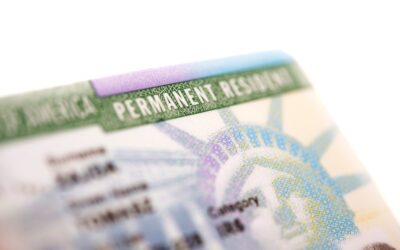You worked hard for your assets. But in an increasingly litigious world, those assets could be on the line. High net worth individuals, especially those with an occupation with high litigation risk, benefit from taking at least some of their assets out of the reach of U.S. creditors.
Protect assets offshore from U.S. creditors
The U.S. is a comparably “sue-happy” country. If you or your business could face prolonged litigation, your assets are at risk. In the case of bankruptcy, courts can order seizure of your assets.
A domestic asset protection trust only protects the assets if they had been held in the trust for a certain amount of time, depending on the state. In addition, to protect the assets you must hand over control of the assets to a properly structured irrevocable trust.
This is where a foreign asset protection trust or offshore trust comes in. Not only does it protect your assets better against creditors, the offshore trust also allows you to maintain greater control over the assets, if set up correctly.
Important terms
Settlor – establishes the trust
Trustee – controls the trust
Beneficiary – receives the money from the trust
Why not a domestic asset protection trust?
A domestic asset protection trust (DAPT) does offer the familiarity of local jurisdiction and legal recognition. However, to actually protect the assets against creditors you have to give up control over the assets. The more control you retain, the more vulnerable the trust is against creditors.
Furthermore, a DAPT remains in the jurisdictive reach of the US. Most states allow exception creditors that may still have access to your trust when other creditors don’t.
Comparing a domestic and a foreign asset protection trust, the foreign trust offers immense advantages.
Advantages of a foreign asset protection trust
Foreign asset protection trusts (FAPT) offer two key advantages over domestic trusts:
Holding the assets in a jurisdiction with friendlier laws
With an offshore trust you take your assets out of the jurisdiction of the U.S. In the U.S., a judge can issue a court order to a domestic trustee but not to a foreign trustee. Because the trust is offshore, the laws of country the trust is formed in apply. Some countries don’t enforce U.S. judgements and are therefore commonly used for international trusts, like Belize and Cook Islands.
Retaining more control over the assets
Besides selecting the right jurisdiction, the appointment of the trustee is paramount to properly protecting your assets. The point of a trust is that you no longer have control over those assets; hence creditors and litigators cannot come after them. By putting assets in a trust you are electing to give up control of those assets. You assign a foreign trustee who has complete control of your assets. This may sounds scarier than giving up control in a domestic trust. However, a U.S. court cannot order the foreign trustee to hand over assets.
There are certain aspects of a trust, which can give you some decision making ability to make investment and other decisions under a document called “Statement of Wishes”.
Set up a foreign trust correctly to protect assets
What assets can be protected in an international asset protection trust
An offshore asset protection trust is best suited for assets that already are or can be moved offshore. This includes offshore bank and brokerage accounts, real estate and property abroad and really any type of asset with value.
However, assets located in the U.S. such as real estate, businesses, and other property, are not fully protected in a foreign trust. While you could transfer the title to the offshore trust, a U.S. court could still seize the domestic assets.
Best jurisdictions for offshore trusts
Preferred jurisdictions for an asset protection trust have strong laws and are politically and economically stable. The Cook Islands is a favorite as it has been well tested in courts. Belize offers a cheaper option and good privacy protection. Nevis and Isle of Man round out the best countries for foreign asset protection trusts. These countries make it much harder for civil creditors to sue you.
Choosing the right jurisdiction for your offshore trust ultimately depends on your level of comfort with the trustee, time zone, banking considerations and location of assets.
Are foreign asset protection trusts bulletproof?
To effectively protect your assets, the international trust must be formed properly. Failures in recent years occurred in rare cases after complex and extensive years-long litigation. So even while a legal risk remains, an offshore trust provides a strong deterrent for creditors.
To further reduce risks, you should consider a foreign asset protection trust as one tool in your overall estate plan. This plan may also include a domestic trust for assets physically located in the US and an LLC in a different jurisdiction.
Possible structure for foreign asset protection
You can achieve strong protection if your trust is structured properly in a good jurisdiction. We generally recommend a foreign trust (Belize or Cook Islands) that owns a foreign LLC in a different jurisdiction (Nevis). This allows for further diversity in the international trust structure.
In this structure, assets are be held by the Nevis LLC, which is owned by the trust. The settlor would be the manager of the LLC and hence responsible for all decisions of the LLC, while the trustee ultimately controls the trust. The LLC manager has all legal control over the LLC and signature authority over the bank accounts, yet does not own them.
In the case of a lawsuit or creditor, the settler can temporarily transfer the management of the LLC to the trustee. This is where the Statement of Wishes mentioned earlier comes in. The trustee will administer your trust and bank accounts under this Statement of Wishes, which was done when the trust was formed.
Talk to an experienced advisor to determine if an offshore trust is right for and how to set it up correctly.
Image by Chris Barbalis





